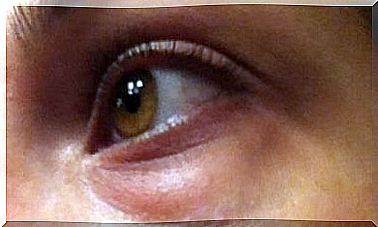Atypical Depression Is A Complex Disorder

Atypical depression is a subcategory of depression. It is very difficult to diagnose this type of depression. After all, the symptoms are similar to those of ailments such as simple fatigue, stress or even disturbances of metabolism.
But we should remember one thing when we talk about these kinds of emotional problems: people with this kind of depression are not always fully aware of what is happening to them. Moreover, what is happening may not be the result of simple exhaustion or a temporary bad period.
Your regular GP is undoubtedly the first and best person who should be aware of these symptoms. Also, remember that these symptoms sometimes hide as excessive weight gain or drowsiness.
In this article, we want to take a closer look at this issue. We will pay particular attention to those symptoms that you should look out for and be aware of.
Atypical depression: when the body is damaged because the soul is suffering
Most health professionals have a basic protocol to identify depression :
- recurring negative thoughts
- feelings of helplessness
- insomnia
- suicidal thoughts
From this protocol, they can make an accurate diagnosis and determine the type of depression. They can then decide which pharmacological and therapeutic treatments should be followed.
But in an atypical depression it is not so clearly defined. It is only when someone has suicidal thoughts that they know that something is wrong. Of course, this is an alarm signal that will ensure that both the patient and the family will seek help.
Before that, however, the patient’s quality of life has already changed in measurable ways. So let’s look at some fundamental features of atypical depression.
Physical Symptoms
People with atypical depression often start to gain weight without knowing why.
It is not the same as having more hunger or more appetite than usual. The patient’s metabolism actually changes. Of course, someone will accumulate fat more easily that way.
Another symptom that is common is both fatigue and pain. The affected patient experiences this mainly in the arms and legs. They feel very heavy. Sometimes this goes so far that it can be difficult to move at certain times of the day.
As a result of that exhaustion, you feel little or no desire to perform daily tasks. Eventually, you may even cut yourself off from your normal social activities.
Hypersomnia
People with atypical depression can sleep for extremely long periods.
Sometimes they sleep up to ten hours straight. As a result, they are in a constant state of fatigue and weakness. Moreover, their view of reality is as if they are in a dream, without possessing the ability to control that dream.
Hypersensitivity
This mood disorder makes you moody, easily irritated and unable to receive positive emotions.
You may be watching good news, relaxing moments, laughing and partying from a distance, because those situations may feel annoying and even incomprehensible to you.
As if all of the foregoing were not enough, these individuals usually also begin to develop disastrous thoughts. Sometimes they begin to believe that whatever they start will always end badly. So it’s not worth acting or reacting because they have no control over anything.

Periods of Great Anxiety
An increased sense of anxiety is also a hallmark of this type of depression.
Strangely enough, a person with atypical depression realizes very well how defenseless he is. At the same time, that person feels bad about this. That feeling is what causes a rejection of oneself to develop. That leads to even more fear.
It is common to go through periods of calm and fatigue, as well as months of stress, nervousness and anxiety. Obviously, this can have a serious impact on their work and social life.
What Causes Atypical Depression?
Atypical depression affects both men and women. With this type of illness, it is always the case that some ask for help and others are better able to manage the illness or sometimes experience emotional relief.
On the other hand, there is not one simple or exclusive cause by which we can define atypical depression. This is a multifaceted reality.
Let’s examine the possible causes in more detail.
Possible causes
Often there is a genetic cause. If your parents have suffered from this disease, you are more likely to also suffer from this condition when you are faced with a complicated situation. That could be a loss or a breakup, or a traumatic event and so on.
The expert explanation is that it usually develops as a combination of two factors: an accident or trauma to the body, and the genetic predisposition to depression.
In other cases, it can be the result of too much of anything. Family problems, dissatisfaction with your life, daily stress and the difficulty of learning how to control the emotions that trigger this state of mind.

Therapy
A multidimensional approach is used to treat this condition. Treatment will therefore involve medication, psychological therapy, social support and lifestyle changes.
Usually, an atypical depression appears and disappears over the course of two years.
However, it remains a subcategory of depression. That means that the affected person faces a major challenge. This will require not only the help of close family and friends, but also vigilance, patience and compassion.









